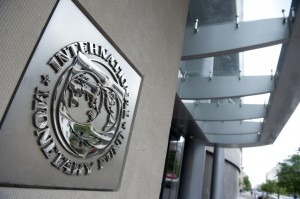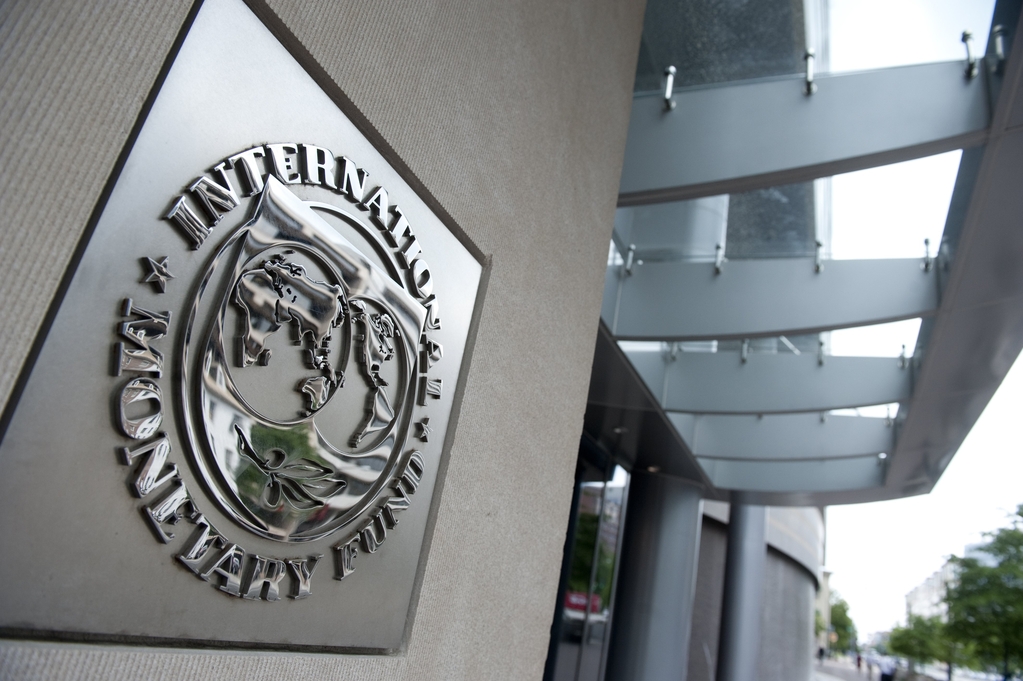
(AFP Photo)
The timing of Standard and Poor’s (S&P) decision on Thursday to downgrade Egypt’s long term sovereign credit rating to CCC + just days after Egypt’s recent cabinet re-shuffle cast doubts on the new government’s ability to successfully complete negotiations with the International Monetary Fund (IMF) over the pending $4.8bn loan, said President of the Research Division for Pharos Holding Hani Genena.
The downgrade, he said, was evidence that international agencies had lost confidence in the ability of Egyptian officials to enact the serious economic reforms needed to secure the loan.
Egypt’s previous government often reiterated the need to raise Egypt’s foreign currency reserves to $19bn in order to obtain the IMF loan.
Fakhri Al-Fekki, assistant to the former Executive Director of the IMF, stated that the reasons behind the downgrade can be attributed to the perpetual state of risk within Egypt’s economic and political climate. Examples of the risky climate, he said, included the government’s failure to remove the prosecutor general, to draft a new elections law, to remove Prime Minister Hesham Qandil, and to escape Muslim Brotherhood control.
Representatives from S&P attributed the downgrade to their fear that Egypt’s government was unable to reign in the country’s budget deficit and balance its payments, in addition to concerns over the lack of political compromise throughout the country.
The government’s failure to implement the kind of reform needed to secure the country’s pending IMF loan is also a problem, he said.
Egypt’s prospects for securing the loan were getting weaker, he added, not only due to the country’s recent credit downgrade, but also as a result of the obstruction of a pending $3bn loan from Qatar.
Bloomberg stated that Egypt’s current credit rating was seven levels below the standard needed to successfully secure investment by S&P standards. Egypt currently holds the agency’s second lowest rating, at a time when the country is witnessing increased amounts of financial pressure.
Bloomberg added that the country’s long-term sovereign credit rating was one step above that of Cyprus but was lower than that of Greece and Pakistan.
Egypt’s credit rating has so far been downgraded three times this year, placing increased significance on the country’s acceptance of the IMF loan, a fact which has widened the country’s budget deficit and weakened the value of Egypt’s currency.
Moody’s rating agency also downgraded the sovereign debt value of Egypt’s currency in March, dropping it from B3 to CAA1, under claims that the Egyptian government had not pursued sound policies.
Bloomberg further attributed the downgrade to the failure of Egypt’s government over the last two years to successfully engage in negotiations with the IMF and meet the institution’s financial conditions.
Trevor Cullinan and Dima Gardani, economic analysts for S&P, stated that the recent decision to downgrade Egypt’s credit reflected the company’s belief that the government needed to take more concrete steps to put in place a sustainable plan for the medium-term to address Egypt’s financial funding issues.
The organisation further stated that they expected Egypt’s deficit to make up 11% of the country’s GDP from 2012-2016. This came shortly after Al-Morsi Hegazy, Egypt’s previous finance minister, stated last month that the country’s budget deficit could increase from 11% to 11.7% by the end of the fiscal year ending in June as a result of the government’s failure to institute serious financial reform.
Officials from S&P stated that they expected pressure on the Egyptian government to increase with regards to obtaining further grants and loans from international institutions. In this respect, securing the IMF loan, they said, could now be considered a long-term goal.



